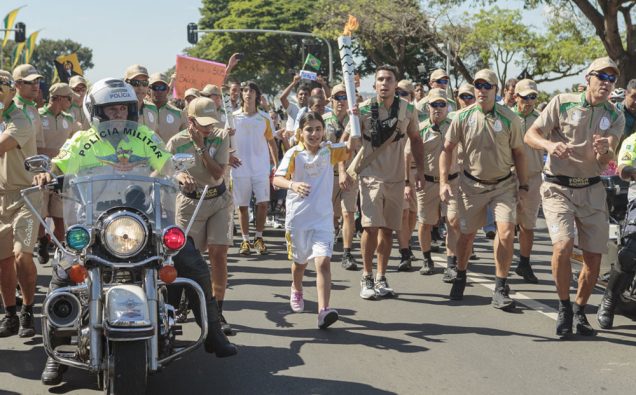
What will define our time in times to come? Conflicts, terror, and the great exodus of people from the Middle East and Africa, and on the positive side medical advancements and the unprecedented connectivity of human beings via the web of technologies? Perhaps all of it, encapsulating Charles Dickens’ classic description “it was the best of times, it was the worst of times.”
Yet, no other factor seems more critical to the immediate future of a large part of humanity than the mass movement of people seeking safer shores in an expanding ocean of troubles.
The Olympics, being held with the theme of peaceful coexistence, highlights the predicament of the displaced people, as the games contrast human spirit of competition with the greed for power and pelf that triggers conflicts.
Migration – which could be described as leaving one’s home for another land voluntarily for a variety of incentives – is a testing experience even in peacetime. I have seen people cry at the mere mention of streets, symbols and culture of their birthplaces.
But what about forced migration? It must be much more mortifying, and excruciating. What goes on in the minds of those who flee their homes in the face of death, destruction, persecution and worsening conflicts?
Their parting pain growing more intense with the feeling weighing on their hearts that they would probably never see again the faces and places they are leaving behind in hometowns.
What is the city, but the people? The people are the city, the Bard of Stratford-upon-Avon said.
Last month, I met with a group of newly arrived Syrian refugees in the United States. To the majority of interfaith gathering at the home of a Pakistani-American, the refugees did not need to say anything. Their stories were writ large on their faces and scars in their minds were too fresh to be erased.
Just a few days later, I read a story about the United Nations arranging for a refugees squad to take part in Rio de Janeiro Olympics. The displaced would represent the distressed humanity, barely surviving at the mercy of strangers.
It would have taken a undaunted spirit of the games for these refugee athletes to appear as sport participants in these times of chaos, conflict and killings in Syria, Iraq, and several African countries. The recent killings in Kashmir, and those at the hands of terrorists across continents, are the latest in long list of massacres hitting at the very soul of humanity.
Doesn’t gathering courage to play a sportsman or a sportswoman in the backdrop of such foul play seem a herculean task? It really does. Must be.
“I know you have had very sad, terrible stories and experiences, but you are a source of inspiration for all of us. Your stories are very sad but, at the same time, you can be a source of hope for many people,” UN Secretary General Ban Ki-moon Thursday told the refugee athletes.
The athletes from conflict-ridden states including South Sudan, Syria, Democratic Republic of the Congo and Ethiopia will make history by taking part in the Olympic Games as part of the first-ever Olympic Refugee Team.
Backed by the Office of the UN High Commissioner for Refugees (UNHCR) and the International Olympic Committee, the 10-member team was created to bring global attention to the magnitude of the global refugee crisis and act as a symbol of hope for refugees worldwide.
Currently, there are 65 million people displaced or refugees around the world. The displacements from multiple conflicts is the largest number of refugees since the end of World War II.
The United Nations has called for a worldwide cessation of hostilities and observe the historic ‘Olympic Truce’ during the Games.
“A respite in fighting would manifest the values that the Games seek to promote: respect, friendship, solidarity and equality,” Ban Ki-moon said.
“I call for a push to match efforts to win medals on the playing fields with work to silence guns on the battlefields,” he added.
He cited the example of legendary boxer Muhammad Ali, the Olympic Gold Medalist and the UN Messenger of Peace, who used boxing because it’s a platform to get to people.
The statements quoted above have been made in good faith and represent the world body’s desire for peace. But for all such peace calls to resonate, the world must act and act swiftly if it is to stem the tide of killings.
The Olympic Refugee Team might not win medals in competition against highly trained and talented athletes but they would be champions of the Rio de Janeiro sports gala for reminding the fractured humanity of the spirit to live peaceably – not just to solemn memory of the lives lost but also as a ray of hope for the new generation.











